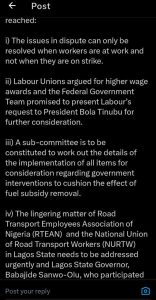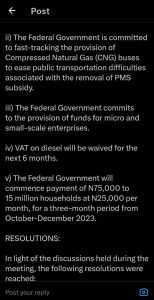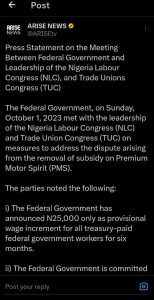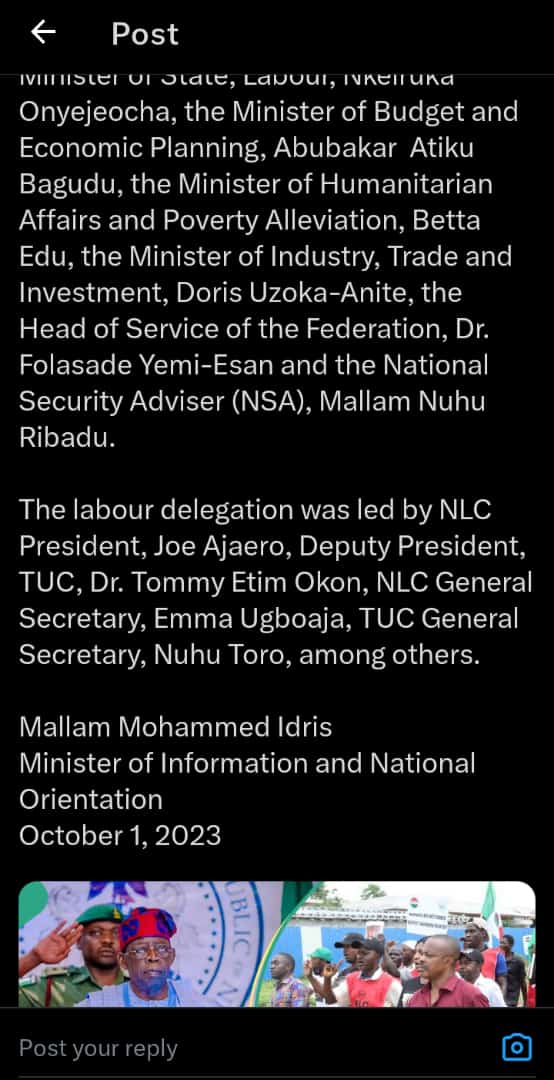President Bola Tinubu and the Sultan of Sokoto, Alhaji Sa’ad Abubakar, have appealed to the Nigeria Labour Congress and the Trade Union Congress to shelve their planned strike over the removal of fuel subsidy. The organised labour had fixed Tuesday, October 3, for the commencement of an indefinite strike over fuel subsidy removal.

 However, speaking during the public lecture and special Juma’at prayer to mark the 63rd independence anniversary of the country at the National Mosque, Abuja, Tinubu appealed to the workers not to embark on the strike.
However, speaking during the public lecture and special Juma’at prayer to mark the 63rd independence anniversary of the country at the National Mosque, Abuja, Tinubu appealed to the workers not to embark on the strike.
Represented by the Deputy President of the Senate, Senator Jibrin Barau, the President reiterated the commitment of his administration to cushion the effect of the fuel subsidy removal.

In a statement by the media aide to the Deputy Senate President, Ismail Mudashir, he said, “The Sultan has talked about the issue of strike by the NLC. I also call, on behalf of His Excellency, the President, and the entire government, on the labour leaders to shelve the strike. Earlier, the Sultan appealed to organised labour to give the Federal Government another chance.
He said, “For God’s sake, for Allah’s sake, anybody planning to go on strike should please give the government another chance. Please, rethink and give the government another chance.
The Sultan, who said he had been involved in the negotiation of the labour leaders and the government since 2007, said if the NLC
The government had urged unions to continue negotiations instead of resorting to strikes, saying this would hurt an economy grappling with double-digit inflation foreign currency shortages and low oil production.
Tinubu has defended his two biggest reforms – removal of the subsidy and foreign exchange controls – saying although this would lead to hardships in the short term, they were necessary to attract investment and boost government finances.
Africa’s largest economy has seen living and transport costs heavily impacted after the government ended a petrol subsidy and also freed the naira currency, leading to a sharp devaluation of the local money.


